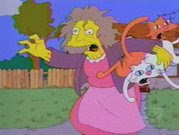Charles Schulz’s life was not easy by any means and he had to make many tough decisions, but these life experiences helped him form his code of ethics. He believed in himself and his cartooning, but had to go through the pain of being rejected by newspapers almost everyday. However, the anguish he received from rejection is not even close to the pain of his mother’s death. Obviously he was very sad because of his mother’s early death to cancer, but he was also mad because of the way that no one was telling her the truth. The author shows Charles’ feeling towards her care, “For Sparky, the most harrowing part of his mother’s torment was that no one told her that her disease was incurable. She remained in the dark until the bitter end” (127). Charles thought it was unethical to let a person die without them knowing that there death was inevitable. Dena Schulz had been going up and down in her health and so it must have been horrible for a person with his ethics so sit there and not tell his mother that there would be no recovery this time. I have said this in a previous blog, but I think this is why he has no adults in his comics. The painful memories of him just standing there and watching nobody do anything while his mother slowly unknowingly die must’ve been very hard for him to bear.
Was it ethical for Charles to stall his mom’s death do that his talents could be proven to her? Charles was a person who wanted to be loved by everyone, but when he didn’t receive much love back he had to prove himself to the world. I wasn’t as if he was a bad person, he just had the unfortunate combination of being short and shy. He wanted his mother to see his work as the author describes, “What kept itself fiercely alive for more than five decades was the sock of realization in June 1940 that, once his part in the yearbook had come to nothing, he had little time to show his mother that he was something” (113). Above I described his personal anguish with the doctors and there treatment of his mothers, but he had to make an ethical decision too. Was it ethical or selfish for him to want his mom to see his life’s works? I think that he wanted to stall his mother’s death so that he could show her that he was somebody. When the doctors decided to end treatment I think he went into a panic, in that, he always thought that his mom would be alive to see his work, but it was beginning to appear that that was not the case. It was time to say goodbye to his mom whether he liked it or not and looking back I bet he wished he would have went about it differently.
Subscribe to:
Post Comments (Atom)

4 comments:
Wow, this is a little depressing. But it also makes you think. The relationship between a child and their parents is so complicated. It's awful that Schulz had this great need to prove himself to his mother, and that she was dying at the same time. Your connection to his comics - the reason that adults don't appear in his comics - was very insightful. I don't think I'll ever read Peanuts the same way.
I like how you talk about his life experiences helping him form his code of ethics. It shows us how our actions, and the actions of those around us, affect us not only now, but into our futures. You do a great job of tying into his comics as well.
I agree with Lida that it is rather sad that he felt he had to prove himself to his mother. I'd be interested to know why he felt this way. Did his mom think him talentless or did Schultz think this was what his mother thought?
I agree with what Lida, Mackenzie and Marion have said but what I'm more confused/intrested in is why did he feel like he had to hide the fact that his mother was dying from her? I don't know if maybe you've answered that in another post but I think that's almost odd that he would care so much for her but not let her in on what was happening to her.
Post a Comment